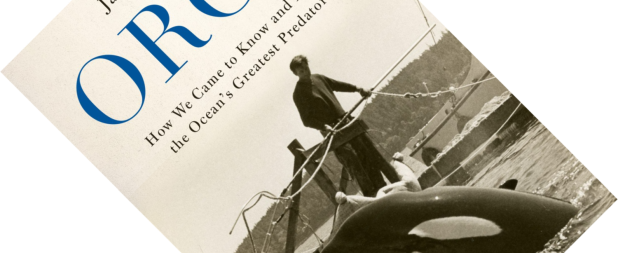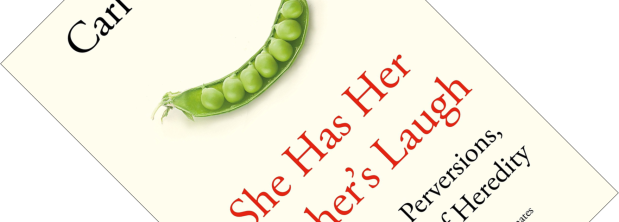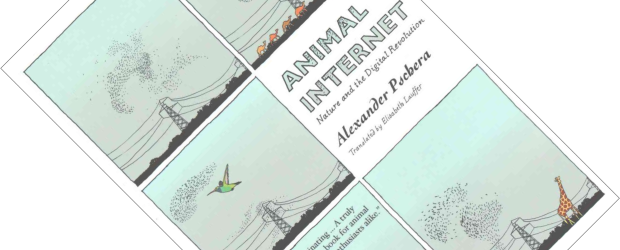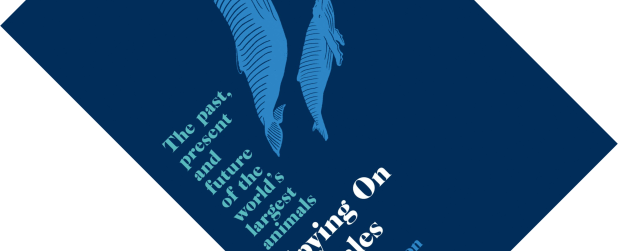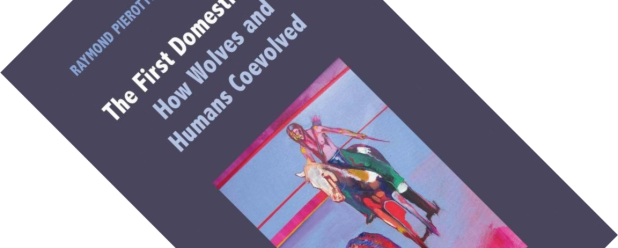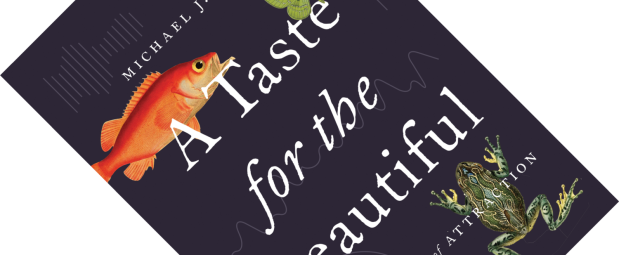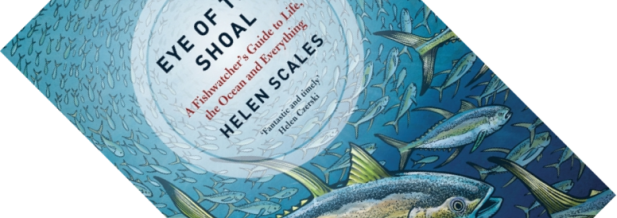Orcas or killer whales have been at the centre of a swirling controversy for decades. Popular attractions in aquaria, their plight there has been highlighted in recent books and documentaries, further strengthening opposition to keeping cetaceans (i.e. whales, dolphins, and porpoises) in captivity. However, as Jason M. Colby meticulously documents in this book, there is a cruel irony at play here: this very practice of captivity is what raised our environmental awareness in the first place.
animal behaviour
Book review – Dinner with Darwin: Food, Drink, and Evolution
Who could refuse such an invitation to dinner? In fourteen short chapters, Dinner with Darwin provides a smörgåsbord of topics on the role of food in human evolution and vice versa, many of which have been covered here in recent reviews. This is Jonathan Silvertown’s fourth book with the University of Chicago Press, and based on this, I would love to read his other books as well. Care to join me at the table?
Book review – She Has Her Mother’s Laugh: The Powers, Perversions, and Potential of Heredity
If Charles Darwin were to walk into my office today and ask me: “So, what did I miss?” I think I would sit the good man down with a copy of She Has Her Mother’s Laugh, telling him: “Here, this should get you up to speed”. Darwin struggled to explain how traits were being inherited from generation to generation. As New York Times columnist Carl Zimmer shows in this wide-ranging book, the story of heredity has turned out to be both diverse and wonderful, but has also been misappropriated to prop up some horrible ideologies.
Book review – The Enlightened Gene: Biology, Buddhism, and the Convergence That Explains the World
I sometimes wonder whether I am a closet Buddhist. Now, I will be the first to admit that I know next to nothing about Buddhism, but what little I have encountered often strikes a chord with me. The Enlightened Gene shows there might be a good reason for this. This book chronicles a most unlikely project: the Emory-Tibet Science Initiative. On the invitation of the Dalai Lama no less (!), Emory University has developed a science curriculum to be taught to Tibetan monks and nuns in exile in India. Spearheaded by professor Arri Eisen and in close collaboration with monk Geshe Yungdrung Konchok, the aim is to integrate modern science (focusing on physics and life sciences, especially neuroscience) into their monastic curriculum.
Book review – Animal Internet: Nature and the Digital Revolution
This book is translated from the German Das Internet der Tiere, published in 2014. I started reading it thinking it would mostly deal with what the latest developments in animal telemetry are telling us about conservation, and what we can learn moving forward. With advances in technology, GPS units and tracking devices are now becoming so small that we can even attach them to insects. Scientists are uncovering a wealth of data about bird migrations, whale feeding patterns and many other behaviours that are normally unobservable to us. Instead, this book provides a philosophical blueprint for how technological advances could bring about a new way for humans to reconnect to animals.
Book review – Buzz: The Nature and Necessity of Bees
Sure, I have been lectured about the birds and the bees, and yet I learned an awful lot more about the bees from Thor Hanson’s latest work Buzz: The Nature and Necessity of Bees. Hanson has previously written popular works about feathers and seeds, and in Buzz he turns his attention to bees. Already this book has garnered a lot of positive press and was Book of the Week on BBC Radio 4. Most people associate bees with honey and therefore with the honeybee, Apis mellifera, but Hanson specifically wants to talk about all the other thousands of bee species, many of which are as interesting and as important, even though some of them are diminutive and hardly noticed.
Book review – Spying on Whales: The Past, Present and Future of the World’s Largest Animals
It should have been a straightforward expedition. As a young career palaeontologist, Nick Pyenson found himself in the Atacama desert of Chile, tasked with mapping rock layers to establish a continuous chronology that would help dating fossils found in the area. Whale fossils, Pyenson’s speciality, are rarely found complete, which is true of most fossils. So what do you do when a colleague takes you to the construction site of a new highway and shows you not one, not several, but literally dozens of complete fossil whale skeletons? It represented a treasure trove for science, but retrieving the material before the highway constructors would move in was also a daunting, labour-intensive task that could make or break careers. I almost found myself standing next to Pyenson in the dusty clearing, the Chilean sun beating down on me as he faced this dilemma. This is just one of several immersive narratives recounted in Spying on Whales, which successfully blends travelogue and popular science.
Book review – The First Domestication: How Wolves and Humans Coevolved
The evolution of domestic dogs from wolves is something that has been written about a great deal. Seeing dogs are one of our oldest domesticates and very close to our hearts, there has been an intense interest in this subject. The First Domestication provides a new perspective by turning to a rich vein of knowledge that is often ignored by contemporary Western scientists: traditional stories from tribal and indigenous peoples. If the sound of that makes you roll your eyes – something I am normally much inclined to do – you would be missing out on an incredibly well-written book that deserves your full attention.
Book review – A Taste for the Beautiful: The Evolution of Attraction
Here is a strange question: does the sight of a peacock’s tail make you sick? Well, it did have this effect on Charles Darwin. The reason was perhaps more cerebral than anything else. With A Taste for the Beautiful: The Evolution of Attraction, professor in animal behaviour Michael J. Ryan gives a superbly readable and accessible account of his and other’s studies that address how sexual beauty comes about, and why we see such a bewildering diversity of traits used in mate choice.
Book review – Eye of the Shoal: A Fish-Watcher’s Guide to Life, the Ocean and Everything
Helen Scales is a marine biologist, diver, and surfer, and is no stranger to writing good books. I have previously read Poseidon’s Steed: The Story of Seahorses, from Myth to Reality from her hand. The book after that, Spirals in Time: The Secret Life and Curious Afterlife of Seashells, received critical praise in the press and was shortlisted for the Royal Society of Biology book prize. Here, Scales turns her attention to fish. Is this another page-turner waiting to be recognised?

